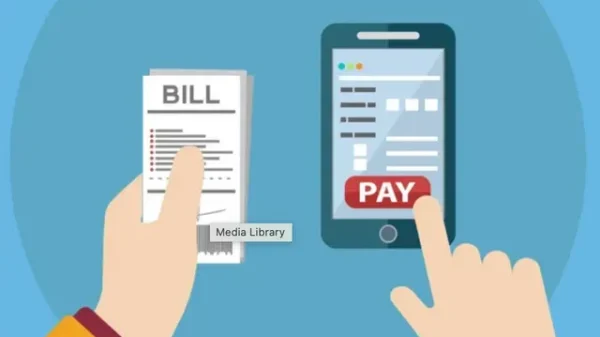Facebook’s Red Team Wants to Do More
Facebook Red Team Newmanwired is tasked with finding vulnerabilities before hackers do. But following COVID-19, which saw the social media giant expose millions of user records on the dark web, Red Team managers Nat Hirsch and Vlad Ionescu wanted to do more.
They set up Red Team X, which works independently of the original team and evaluates third-party products that may be a potential threat to Facebook’s platform.
Also Read: Quibi 100m channelstreetjournal
1. Cambridge Analytica Scam
Cambridge Analytica is at the heart of a massive data misuse scandal that has hit Facebook hard. It’s now roiled the social media giant’s reputation and has resulted in billions of dollars in fines from the Federal Trade Commission and a congressional investigation.
The scandal began in early 2018 when a whistleblower revealed that Cambridge Analytica harvested the personal data of 87 million Facebook users without their consent. They then used the data to influence political campaigns and elections around the world, including the 2016 US presidential election.
According to Wylie, the company used psychographic profiling techniques to target voters. They created adverts for different demographic groups, which were then targeted to specific people based on their personality. The data they collected was able to provide 253 predictions about a person’s voting intentions.
This was a huge problem because it allowed the data to be used to target voters on behalf of authoritarian populists like Russia and China. It also made it possible for bad actors to entrap and manipulate the public through psychological warfare.
A former employee of Cambridge Analytica, Christopher Wylie, stepped forward as a corporate whistleblower in March 2018. He revealed the extent of their data mismanagement and explained that it was possible for them to create a “psychological warfare mindf*** tool” through the exploitation of social media data.
The data was then shared with the Trump campaign and others. It was also used to sway the Brexit vote in the UK.
In December 2015, a Russian researcher called Aleksandr Kogan created an app for Facebook Red Team Newmanwired that harvested the personal data of as many as 50 million users. He gave it to Cambridge Analytica, which later partnered with Mercer-selected political candidates for the purposes of voter manipulation.
2. Dark Web Exposure
The dark web is a part of the internet that is not accessible through regular search engines. It is a venue for people who wish to remain anonymous for either legal or illegal reasons. This includes government critics and outspoken advocates who fear backlash if their real identities are revealed.
It is also a place where criminals and hackers can hide from authorities. They can sell stolen personal information and commit cybercrime on a large scale.
A Dark Web Scanner is a tool that searches the Dark Web for your Personally Identifiable Information (PII). It can help you protect against data breaches and prevent identity theft.
If you have an email address that was exposed on the dark web, it’s a good idea to change your passwords immediately. This is especially important if you have payment information on the account.
You should also look into getting a Dark Web monitoring service to check for any leaks that may have occurred. These services will scan dark web forums for your username, email address and other sensitive credentials that were shared on the sites.
In addition to monitoring the dark web, this service also checks social media sites and online forums for any mentions of your company or brand. The service will notify you if anything appears in these places that could cause you harm or damage your reputation.
This service is free to use and will alert you whenever there are any breaches or other information that you need to know about. You can even set up multi-email monitoring to keep an eye on more than one account.
The best way to protect against data loss is to ensure that you have a good cybersecurity strategy in place. It’s also a good idea to get some kind of identity theft insurance that will cover your losses and restore your personal information if you are hacked.
3. Facebook Passwords in Plain Text
Facebook Red Team Newmanwired has admitted that it stored hundreds of millions of passwords in plain text for years. The company has fixed the issue and is alerting users to change their passwords.
Passwords are normally stored in an encrypted form to allow websites to verify what you’re entering. But in Facebook’s case, various errors seem to have caused the social network to log some passwords in plain text since as early as 2012.
A report by cybersecurity blog Krebs on Security said that between 200 million and 600 million Facebook user accounts may have had their passwords logged in clear text without encryption. The snafu is reminiscent of similar stumbles last year at Twitter and Github.
As the social media giant explained on Thursday, the snafu was discovered during a routine security review in January. The passwords were never visible to anyone outside of Facebook, the company said, and no employees abused or accessed them.
But it’s not clear how the bug got in, or when it was triggered. It was also not clear why the passwords were logged in plain text, or whether they were readable to tens of thousands of Facebook engineers and developers.
In a blog post, Facebook’s vice president of engineering, security, and privacy Pedro Canahuati wrote that an investigation into the blunder found no evidence that any of its employees had abused or improperly accessed the passwords. He also wrote that Facebook will notify users of the blunder, including “hundreds of millions” of Facebook Lite and “tens of millions” of Facebook and Instagram users.
4. COVID-19
Facebook Red Team Newmanwired, like many other tech companies, scours the internet for vulnerabilities in products and services that could be hacked. They work to find ways to thwart hackers and protect the company’s platform.
Unlike other teams, the Facebook red team is not only focused on finding and addressing vulnerabilities in the social media giant’s website, apps, messaging service, and product, but also evaluating all the third-party products that could affect its security. This is a key part of the role, according to offensive research engineer Amanda Rousseau.
She says this way of thinking helps engineers secure Facebook’s platforms more effectively, allowing them to make more secure products and networks. One example of this is the team’s recent discovery of two vulnerabilities in Eltek’s Smartpack R Controller.
These flaws could be exploited by hackers to sabotage networked power systems. This type of supply-chain attack is notoriously difficult to defend against.
This is one of the reasons why CDC recommends that everyone 6 months and older get vaccinated against COVID-19, including those who aren’t up to date with their vaccines or have a weakened immune system. It is also recommended that those who are already vaccinated get a booster dose.
In the case of the Covid-19 virus, a primary shot and booster can help prevent severe illness or disease. This is important for people of all ages, including infants and those who have a weakened immune system or underlying medical conditions.
Without a global response, the COVID-19 pandemic will continue to steal lives and livelihoods worldwide. We need to stop this from happening through the use of tests, treatments and vaccines everywhere they’re needed. This is the only solution to stop this disease’s devastating repercussions on our society and economy.
5. Facebook Hack
A security glitch in Facebook allowed unauthorized parties to download users’ email addresses and phone numbers. This was first discovered in June 2013, and cybercriminals were able to exploit the bug for over a year before Facebook executives became aware of the issue and issued a fix.
The problem was triggered by a change in the way Facebook implemented the “View As” feature on its platform. That change impacted the way access tokens were handled.
This allowed hackers to steal a key that allows you to stay logged in on Facebook over multiple sessions without having to enter your password every time. If a hacker has your access token, they can take over your account and do anything they want with it.
As a result, it is extremely important that you protect yourself against this type of threat. One way to do this is by enabling two-factor authentication on your account. This will send an authentication code to your mobile device when you log in.
If you have a hacked account, it’s vital that you report it immediately and get your profile locked down. This is especially true if the hacker has changed your password or email address.
Another sign of a hacked Facebook account is that you can’t login. This is a common sign of an account that has been compromised, and it can be caused by someone you know trying to play a practical joke on you or a loved one, or by someone who’s out for revenge.
For people who use Facebook to communicate with friends, this can be a big deal. It is even more so for those who have a lot of followers, or share personal details on their Facebook profiles.




































